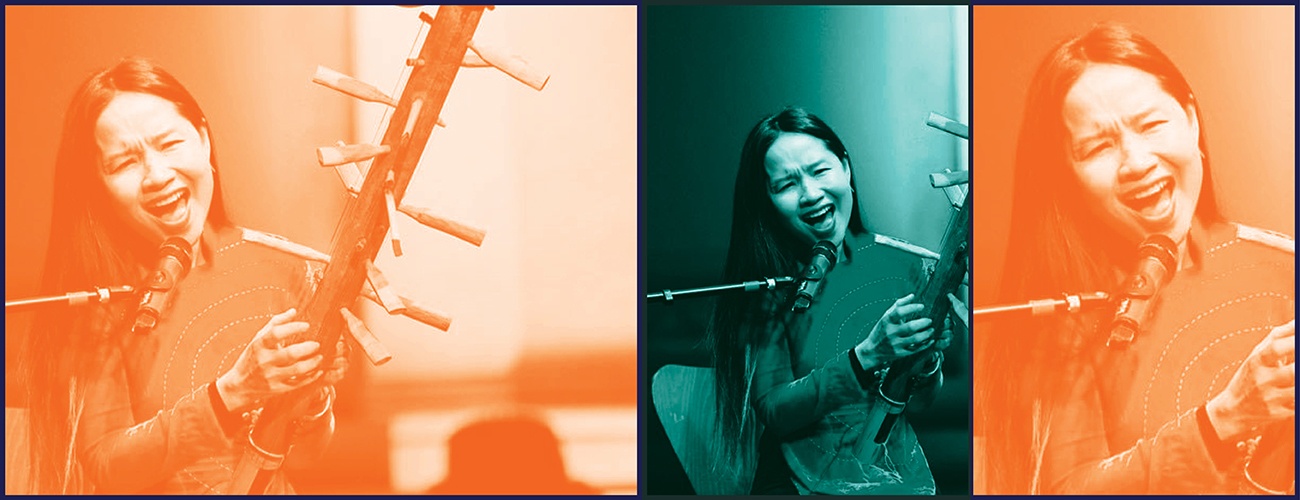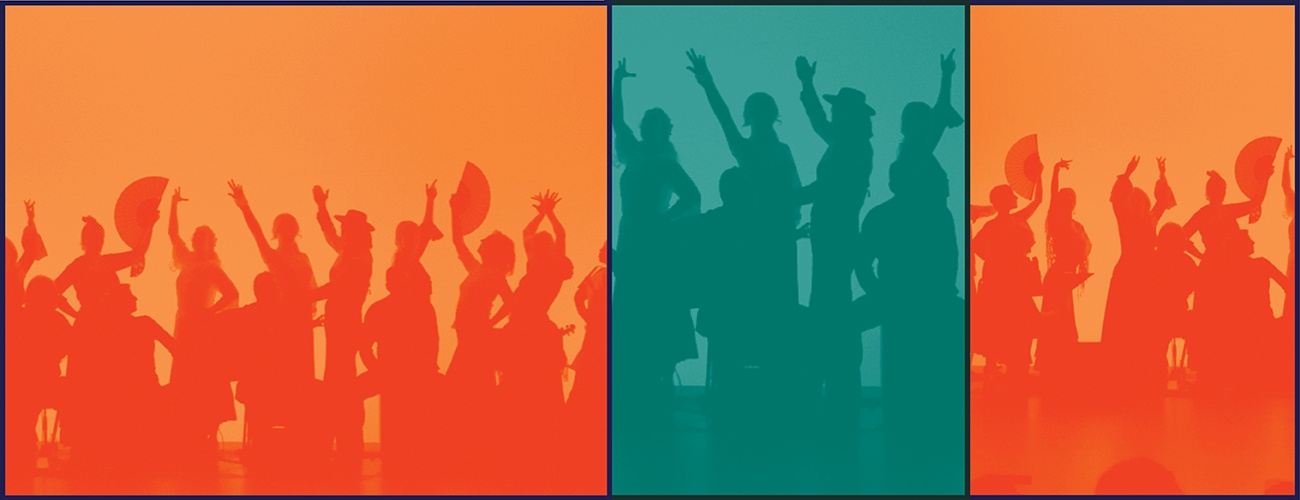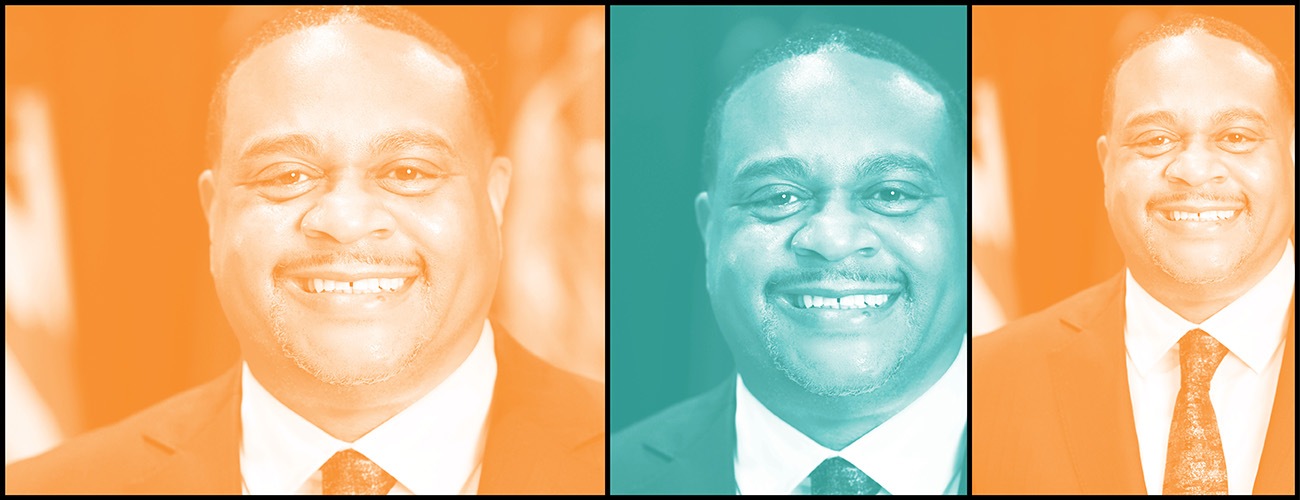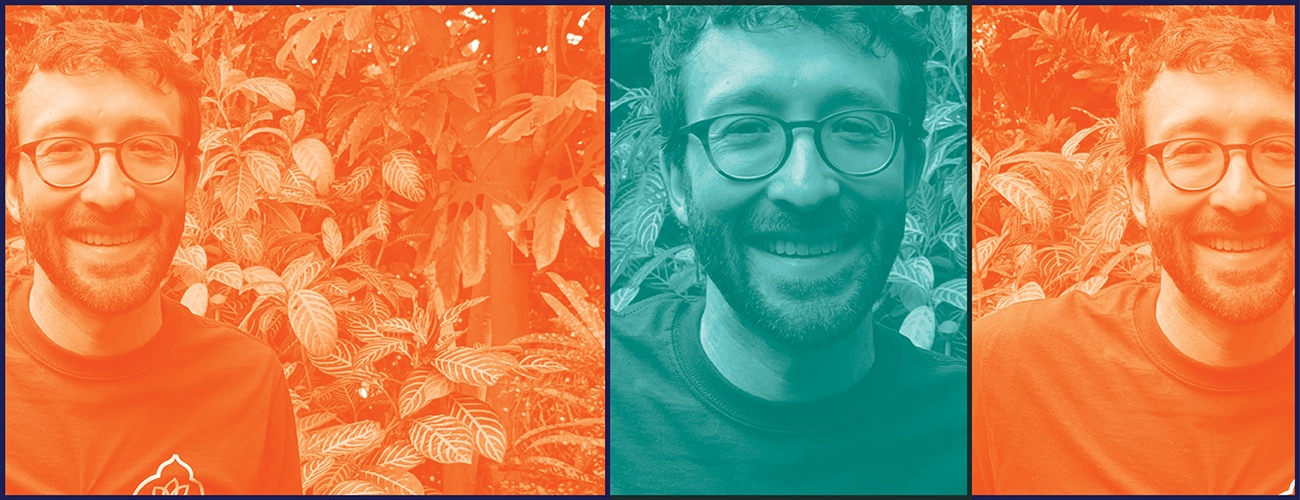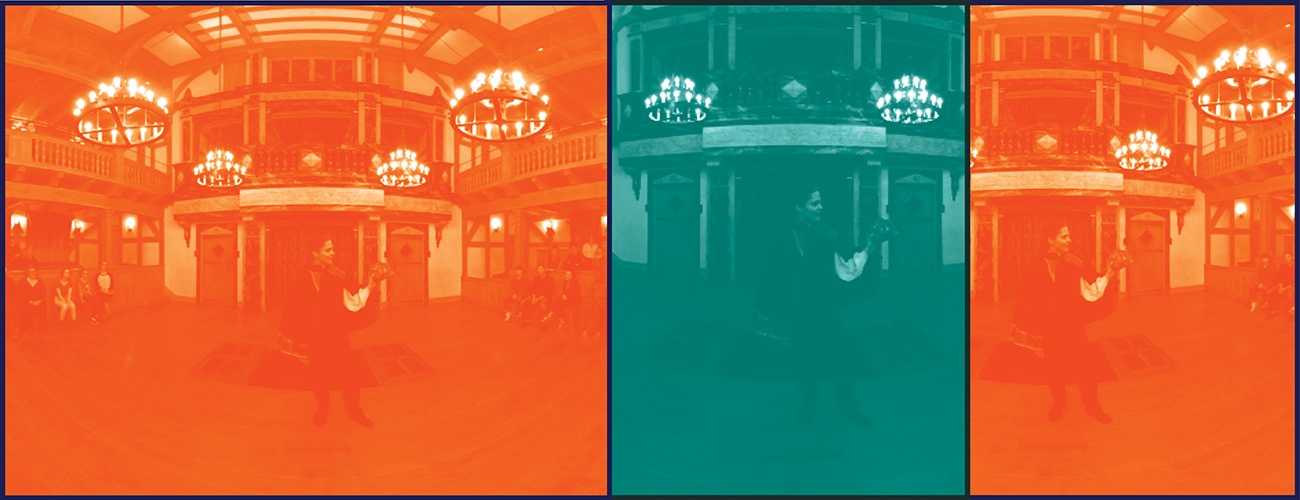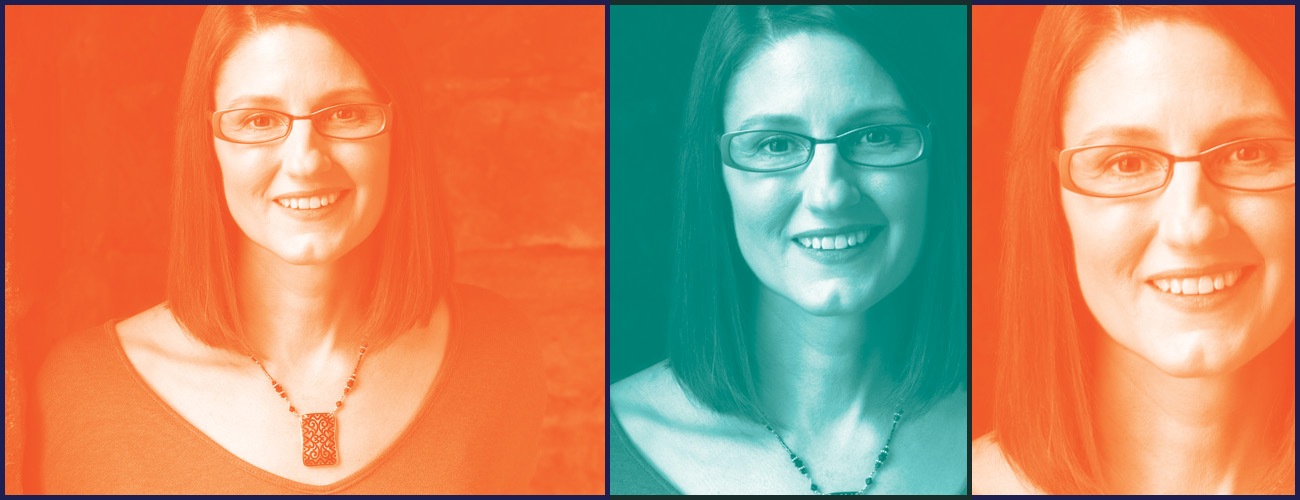Time left to complete order
The 2024 Pittsburgh Humanities Festival has concluded. Please check back later for more information about future festival events.
Core Conversations
Access fourteen events with one purchase! For just $10 ($5 for students), your 2023 Core Conversations Pass opens the door to the Pittsburgh Humanities Festival’s carefully curated, thought-provoking mix of intimate conversations with community leaders, artists, academics, and change-makers from Pittsburgh and beyond. Every presentation includes a Q&A segment with the audience, inviting you to be part of the conversation. You’ll hear about art, politics, history, an array of cultures, and so much more as, together, we explore what it means to be human.

Saturday, March 25 — 12:00 PM
Leading the Cultural District: CEOs Carol Brown & Kevin McMahon in Conversation
with Carol Brown & Kevin McMahon
A historical view of the Pittsburgh Cultural Trust as seen through the eyes of its first two leaders. Hear from Carol Brown and Kevin McMahon who have each lead the organization for decades. Learn more about their work that has guided major construction and cultural impact in the Pittsburgh Arts community.
This Core Conversation is generously sponsored by Carnegie Mellon: Master of Arts Management Program.
Saturday, March 25 — 1:30 PM
Hanging Out: The Radical Power of Killing Time
with Dr. Sheila Liming
Listen in to this interview with Dr. Sheila Liming, author of the book HANGING OUT: THE RADICAL POWER OF KILLING TIME (Melville House, 2023). Joined by Dr. David Shumway (Carnegie Mellon University), Liming will discuss her book -- which mounts a claim for the importance of unstructured social activity -- and associated topics, from parties, to making friends with strangers, to forming relationships at work.
Star-Spangled Fascism? The Extreme Right, Yesterday and Today
with Richard Steigmann-Gall, interviewed by Stephen Brockmann
Dr. Steigmann-Gall discusses his research and reporting on American Fascism today and yesterday. Pushing against the presumption that it has been a "foreign import," Steigmann-Gall shows how the presence of fascism in this country has been "Mayflower" in its roots, is not accountable to immigrant identity, and is still a presence in the American political landscape today.
Saturday, March 25 — 3:00 PM
"Bad Activist: Story, Song, and Spectacle with the "Vietnamese Lady Gaga"
with Mai Khoi
Bad Activist is a multimedia musical performance dramatizing the true story of singer-songwriter/activist Mai Khoi (dubbed “the Vietnamese Lady Gaga”) and her journey from pop stardom to purpose. Performed by Khoi herself, it incorporates storytelling, live video, archival footage, and original animation in a bold evocation of her past, present and future hopes.
Once a darling of the state, Khoi grew disillusioned with government censorship and violence. Emboldened by fellow dissidents, she leveraged her fame to demand change. Heading down that political rabbit hole, she crossed paths with some of the world’s most powerful men: National Assembly Chairman Nguyen Hanh Phuc, Donald Trump, Mark Zuckerberg, and Barack Obama. After her campaign to run for office was suppressed, Khoi was placed under 24/7 police surveillance. Betrayed by friends, detained, interrogated, and barred from performing, she finally fled the country.
Now working in exile, Khoi continues to oppose state violence, sexism, and the rise of the authoritarian right. Her evolving music is an emotionally charged fusion of free jazz and traditional Vietnamese music, touching on some of the most pressing social justice issues of our time. Bad Activist weaves story, song, and spectacle, interrogating the relationship between art and activism and the fraught terrain navigated by artists of conscience who refuse to be silenced.
Alive in Spanish Literature: Flamenco Music & Culture
with Carolina Loyola-Garcia, interviewed by Michelle Gil-Montero
Flamenco has been in love with Spanish literature from the very beginning. In its verses you can find the history of Spain and the Spanish speaking world. It was Federico Garcia Lorca who brought flamenco to the forefront of Spanish culture and fought to bring its cultural heritage out of obscurity. Come explore how Spanish literature and history is present and alive in the singing of flamenco music with multidisciplinary artist and educator Carolina Loyola-Garcia.
Saturday, March 25 — 4:30 PM
The Category is…: A Deep Dive into the World of Vogue & Ballroom
with True T Pittsburgh
LGBTQ community organization, True T Pittsburgh discusses the impact of Vogue & Ballroom culture on the world today. Everything from its artistry and entertainment, to its history and place in activism, True T uncovers the growing culture of Vogue and Ballroom and discusses their contribution to the local community.
Roses from the Southwestern Sun
with Jorge Jimenez
Jorge Jimenez is the self-proclaimed “Mayan Bioengineer” who earned their PhD in Bioengineering at the University of Pittsburgh from 2016 to 2021. In this conversation, Jorge describes their journey from an immigrant farming community in Southwestern Arizona to Southwestern Pennsylvania. Jorge is a descendant of Akateko people, 1 of 21 Maya ethnic groups in Guatemala, and was raised in a trilingual household. Various levels of English, Spanish, and Akateko (a minority Mayan language recognized by Guatemala) are spoken within their family. The heterogeneity of primary languages spoken in their family resulted in unique challenges within U.S. education and healthcare systems. Jorge thus carries the legacy of Maya people in contemporary bioengineering design and praxis. Ultimately, Jorge shares these stories and intersectional approaches to bioengineering as a clear message for language-inclusive practices in education and healthcare settings.
Jorge earned the National Science Foundation Alliances for Graduate Education and the Professoriate fellowship in 2016. They studied and developed novel eyedrops for a subset of rare eye diseases. Jorge is passionate about community engagement, leading engineering education projects with organizations like Casa San Jose, an immigrant resource center in Beechview, and assemble, a science, technology, and art community space in Garfield. Currently, Jorge is a Senior Engineer, at Becton, Dickinson, and Company in Salt Lake City, Utah. From afar, Jorge continues to share their love for Pittsburgh by sharing music from queer collectives (Jellyfish, KewchiNana, and Uhual Disco) with anyone with headphones.

Sunday, March 26 — 12:00 PM
Immaculate: How the Steelers Saved Pittsburgh
with Tom O'Lenic
Immaculate: How the Steelers Saved Pittsburgh is a non-fiction book written by Tom O’Lenic & Ray Hartjen. December 23, 2022, marked the 50th anniversary of the “Immaculate Reception,” the National Football League’s greatest and most memorable play. Defying probability —and perhaps even physics — Franco Harris’ catch and resulting touchdown run propelled the Pittsburgh Steelers past the Oakland Raiders in a stirring AFC Divisional Playoff game. The catch served as an inflection point in the fortunes of the Steelers, who had been perennial also-rans for their entire 40 years of existence. Just when the Steelers rose to become championship contenders, the city of Pittsburgh fell into crisis as its once mighty steel industry collapsed under domestic economic and global marketplace pressure. When the city needed something to hold onto, the Steelers provided them foundational strength and a source of pride. Immaculate: How the Steelers Saved Pittsburgh tells the story of a city, its citizens and its beloved professional football team, and how they rallied together to transform their collective fate.
Overview
Situated at the confluence of the Allegheny River and the Monongahela River, where they meet to form the Ohio River, the settlement of Pittsburgh, with its aquatic superhighway routing all the way to New Orleans, was practically destined to become a bustling commercial center. The region was blessed with an almost luxurious abundance of natural resources, including fur-bearing game, lumber, coal, limestone and iron ore. Positioned west of the Appalachian Mountains, and therefore not requiring time-consuming and expensive shipping up and over the mountains, the region was optimally positioned to supply iron and steel for America’s westward expansion.
As the nation’s appetite for steel-based construction grew, so too did the city of Pittsburgh and its neighboring enclave of mill-based towns. It also built the fortunes of the wealthiest industrialists of the era; some of whom gave back to the community, most of whom did not. In over a century of unparalleled economic success and vibrancy, the city thrived, and along the way grew a cultural arts scene and spawned the birth of professional sports teams. Near and dear to the hearts of the locals were the Pittsburgh Steelers professional football team, participating in the new and novel National Football League.
Through decades though, over forty years, the Steelers were perennial also-rans. While the city and its steel mills prospered, the stumbling Steelers were seemingly destined to stay “the same old Steelers.” Then, quickly, the destinies of the Steelers and their city swapped. Almost overnight, the Steelers were competitive, and a genuine championship threat. The steel industry, however, encountered a “perfect storm” of domestic economic and global marketplace challenges, and it, and all its employees, faced an inevitable economic ruin. By the mid-1970s, Pittsburgh was on the precipice. Staring down its darkest moments, it needed heroes. And, they found those heroes in the form of the Pittsburgh Steelers and the team’s players.
With the Steelers’ rough-and-tumble physical style, they dominated opponents on the way to winning four Super Bowl championships in six years. All the while, they provided a galvanizing foundation for the city to rally around.
Pittsburghers, or “Yinzers” in the local lexicon, could have simply left as the city faced economic ruin, and a great many, in fact, did. But, for those who remained, the Steelers provided a model for perseverance and a grinding work ethic. In return, Pittsburgh’s deindustrialization transformation led to the city being reborn as a world leader in academics, health care and technology, and the city is now frequently mentioned in lists of the country’s most livable cities.
Were it not for the Steelers, Pittsburgh’s fate could have easily mirrored that of its heavy industry brethren Detroit after the fall of its automotive titans. Immaculate: How the Steelers Saved Pittsburgh is a book that weaves together the historical stories of Pittsburgh and its beloved professional football team like the linear strands of DNA — antiparallel, twisting throughout, and irrevocably connected together.
The book begins with the history of the region and its Native Peoples, and tells its story of settlement as it weaves in the origin and early history of the Steelers. Then, it traces the rise of the Steelers against the contextual backdrop of the steel industry’s collapse and the city’s unfolding crisis. The Steelers then provide the foundational inflection point for a “New Economy” Pittsburgh to emerge and prosper. Immaculate brings to life the colorful stories and people that shaped a city and a team over the rich tapestry of profoundly different eras.
This Core Conversation is generously sponsored by Belt Magazine.
Sunday, March 26 — 1:30 PM
Mayor Gainey & Pittsburgh's Future Leaders
with Mayor Ed Gainey and Ashley Lynn Priore
Mayor Ed Gainey answers questions from the future leaders of Pittsburgh, our youth, on pressing issues of their communities. Be a part of the intergenerational dialogue as they listen and learn from each other on bettering the city.
Pittsburgh’s Secret History of Plants with Boaz Frankel
with Boaz Frankel
Pittsburgh’s steel industry was only possible because of the tropical forests that grew 250 million years ago. Boaz Frankel will explore how plants created modern Pittsburgh and share how we can use our gardens to further explore the city’s past.
Sunday, March 26 — 3:00 PM
With Liberty and Language Justice For All with Dr. Uju Anya
with Dr. Uju Anya
Many who care about equity in our society are unaware language justice is also an important part of the issue. Applied linguist Dr. Uju Anya discusses problems faced by child language brokers burdened with translating high stakes documents and interactions for adult family members, individuals navigating legal proceedings and medical care without adequate language support, and language discrimination in schools and housing to exemplify how ensuring everyone’s fundamental right to communicate using the language they know best is a matter of social justice.
Behind the Mask: A Pandemic Photography Project with Beth Kukucka, Open Call Winner
with Beth Kukucka, 2023 Open Call Winner
Behind the Mask is an independent photography project that began at the start of the pandemic. As mask wearing became an uncomfortable mandate, Beth became concerned that we would forget who we are behind our masks - the smiles and expressions that had been so easily taken for granted before they were covered up by a mask. Beth then saw the pandemic as an opportunity to look more closely at who we really are behind our masks by asking the question, "Who are you behind your mask?" Who are we behind the details, facts and figures of what we do and where we live. She became curious as to what we would share about ourselves, if asked that question.
In 2020 she began taking the photos and in July of 2021 took a cross country trip to ask America this question. From the cancer survivor in MA who wants us to know that she is more than a diagnosis to the homeless veteran in Dallas who wants us to know that he is proud to have served his country, the stories and images are a unique look at America behind its mask. In the three year process of working on this project, culminating in a published book entitled "Behind the Mask: A Unique Look At America Behind Its Mask”, Beth has found that regardless of our diversity and differing opinions, behind our masks we are uniquely connected.
Past Open Call winners include:
2022: Heather Tomko – The Power of Embracing my Disability
2020: Boaz Frankel – Offline Curiosity in an Online World
2019: Len Caric – The New Normal: A conversation on the trauma of a school lock downs
2018: Jessie Sage – Phone Sex, Anti Sex Work Feminism, and Masculine Socialization
2017: PJ Gaynard – The Philosphy of Decision Making; Bergita Bugarija – Dive into the Migrant Journey; David Bennett – Behind Bach
Sunday, March 26 — 4:30 PM
Shakespeare in Virtual Reality
Carnegie Mellon University's Department of English shares Shakespeare-VR, a project using virtual reality technologies to enrich students’ understanding of Shakespeaerean drama and the conditions of performance in the early modern theater. Their latest production, “Sweet Sorrow: Romeo & Juliet in Virtual Reality” enables users to choose a character and perform onstage in a simulation of Shakespeare’s theater. As an open source educational tool, instructors everywhere can use it as a tool for education. Join the discussion on how virtual reality can supplement traditional teaching, and how being "in" the theater can transform learning. It is available to download (for free!) at Sidequestvr.com.
Making the Pittsburgh Police
with Elaine Frantz
From 18th century soldiers, constables, and nightwatchmen, through the creation of a full-time police force before the Civil War, those paid to impose order have had a complex relationship with the Pittsburghers they policed. To explore what early policing was for, this talk traces how Pittsburghers resisted, assisted, protested, and defended those policing them from the 1760s through the reorganization of the force in 1887.






